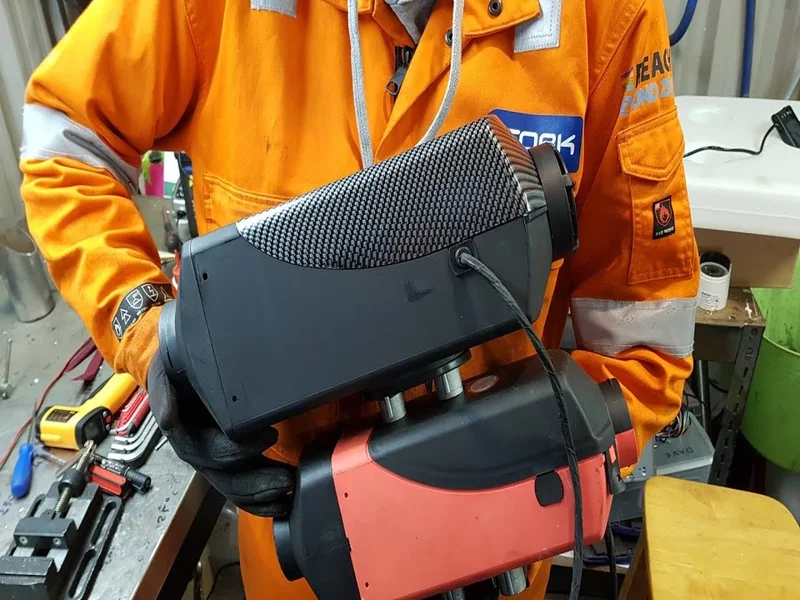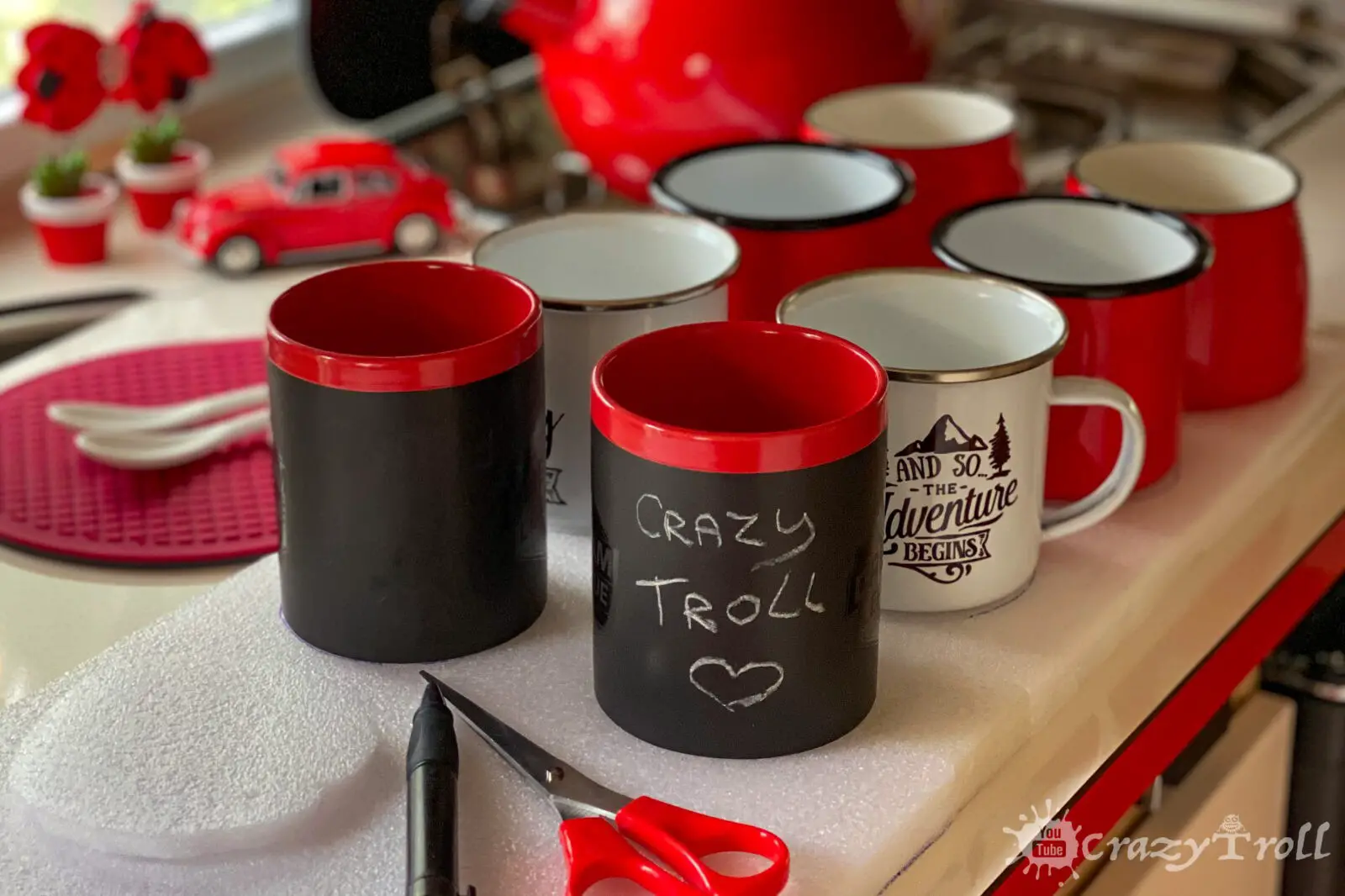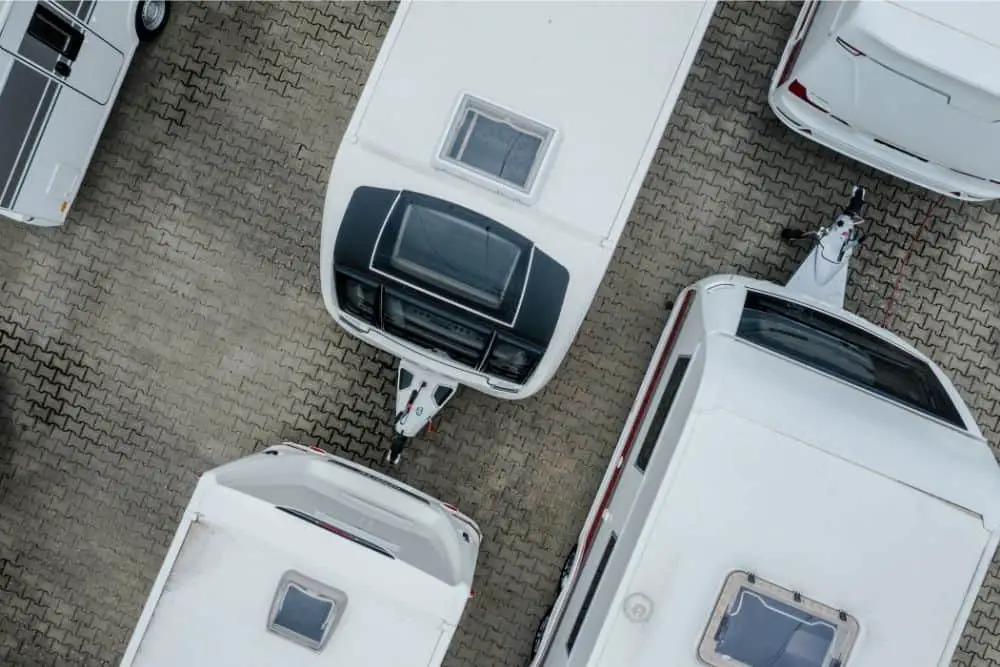Knowing that you can slide behind the wheel of your home and drive it anywhere – at any time – is pretty liberating.
At the same time, there’s a price for this kind of freedom that a lot of new RV owners aren’t fully aware of at first.
We are talking of course about the fact that you’re not just going to have to do routine maintenance on the vehicle part of your RV (oil changes and the like). But that you’re also going to be on the hook for regular “home maintenance” on your RV, too.
Changing out the black water in your RV on a regular basis is a huge piece of that puzzle.
As a general rule of thumb, you need to be changing out the black water tanks on your RV every week. It’s a better idea, though, to make sure that your tanks are emptied completely as soon as they get 2/3 full – and that might be every couple of days.
To learn a little bit more about how long you can leave black water in your RV (and why it’s so important to clean your tanks regularly) check out the rest of the inside info in this guide.
Let’s get right into it.
How Often Should RV Black Water Tanks Be Dumped?
As we highlighted a moment ago, you really should be dumping the black water from your RV tanks every week or so – sometimes more frequently than that and sometimes stretching your dump window a little longer.
A couple of different things are going to impact how often you should be emptying your black water tanks.
For one thing, the number of people traveling in your RV at a time will have a huge impact on how often your tanks need to be changed.
If it’s just you (and maybe one other person) and you aren’t using the bathroom on your RV all that often, you may be able to get a week to 10 days – or even two weeks – out of your black water tanks before they absolutely have to be dumped.
If, on the other hand, you’re traveling with five or six people (or more) and folks are using the RV bathroom all the time you may have to dump your black water tanks every other day.
The size of your black water tank also has an impact on how often should be dumped. Most RVs go with a 40-gallon black water tank, but you’ll want to double-check the capacity of your setup so you know exactly what you’re rolling with.
Should I Be Dumping My Tanks Completely Empty?
When it comes time to dump out the black water tanks you want to be sure that you get rid of almost everything while leaving just a little bit of water in the tank itself.
You see if you pump out absolutely every bit of water when you dump your tanks any solid waste that hits that tank from then on is going to have a much greater chance of building up into a sort of crusted kind of gunk.
That’s a nightmare to get rid of, as you can imagine.
By leaving a little bit of water in the tank (usually water you have flushed through from your gray water holding tank) you prevent that crusted gunk buildup from happening at all.
You don’t have to leave a ton of water behind, either.
We are talking about just enough to barely cover the bottom of the entire tank – just enough to make sure that solids aren’t going to build up, aren’t going to get stuck to the walls of your tank, and (most importantly) won’t harden on top of your tank sensor.
You don’t have to be super precise about leaving this water behind, either.
The chances are pretty good that you’ll get into the swing of things as you get used to dumping out your black water tank. It won’t be long until you can just sort of “feel” the right amount of water to leave behind.
Definitely (DEFINITELY) remember this tip, though.
Nobody wants to deal with hardened solid waste in a black water tank.
How Will I Know My Black Water Tank Needs to Be Dumped?
There are a couple of different ways that you’ll know that your black water tank should be dumped.
First, you’ll have a general idea of when the tank has to be emptied based on how often people are using the bathroom and how many folks you have on board.
Like we mentioned earlier if there are only a couple of people using the bathroom on a regular basis your tanks will need to be emptied as often as if there are a bunch of people using them all the time.
Stick to the general rule of thumb of emptying your tanks about every week or so and you’ll know when it’s time to make a dump.
Secondly, your black water tank will be connected to an electric sensor system that indicates how full it is at any one particular point in time.
These electric sensors can sometimes go a little bit sideways or act a little “wonky” – especially if solid waste is allowed to build up and harden on top of the sensor itself.
That’s why you’ll want to also rely on the third way to know that your tanks need to be emptied:
Listen to them!
Every single time you flush the toilet of your RV you’ll hear that waste flood into the tank itself.
When you’re dealing with a fresh tank that has recently been dumped, that noise is going to sound pretty hollow and pretty empty. As things fill up, though, the sound is going to change – and just like you can hear the sound in a glass change as it fills up, you’ll notice this as well.
It’s not going to take long for you to get a feel for what the sound of a full tank is like, either.
Keep all three of these indicators in mind and you’ll have no trouble making sure that your tanks get dumped on a regular schedule.
What Happens If My Black Water Tanks Aren’t Emptied On Time?
A couple of different things can happen if your black water tanks aren’t emptied on time.
First, if you allow your tanks to get beyond 2/3 full you run the risk of some pretty nasty and follow smells backing up and running through your plumbing and back into the cabin of your RV.
And that’s the good news!
Let your tanks fill up even more than that and you run the risk of some of that black water (and solids, too) following those gases and fumes through the pipes and start flooding into your RV, too.
What a nightmare!
You might also run into issues of the solid waste in your tanks hardening inside of the tank itself. This can compromise the integrity of your black water system (especially if it happens a lot), but it’s also just downright disgusting to have to chisel out and clean later down the line.
Combine all of that with the health risks that being exposed to those kinds of contaminants on a regular basis pose and you can see why it’s so important to flush the system regularly.
Where Do I Dump RV Black Water Tanks?
All RV parks (all reputable ones, anyway) will have sewer systems or black water disposal/collection tanks that you can use to dump out your own system.
You might also have to visit a local or municipal sewer dump office, the same kind of places that septic system pump trucks visit (for example).
You may even be able to dump your RV into your own home septic system – though this can introduce a whole bunch of problems as well.
What you want to make sure you never do, though, is start flooding city, town, or municipal sewer systems with the black water and waste in your tanks.
That’s almost always illegal. You run the risk of some real penalties – fines and potential jail time – if you start depositing hazardous material where it doesn’t belong.
No, it’s best to make sure that you only ever dump and clean out your tanks per the instructions on your RV owner manual and only ever at authorized dump locations.








